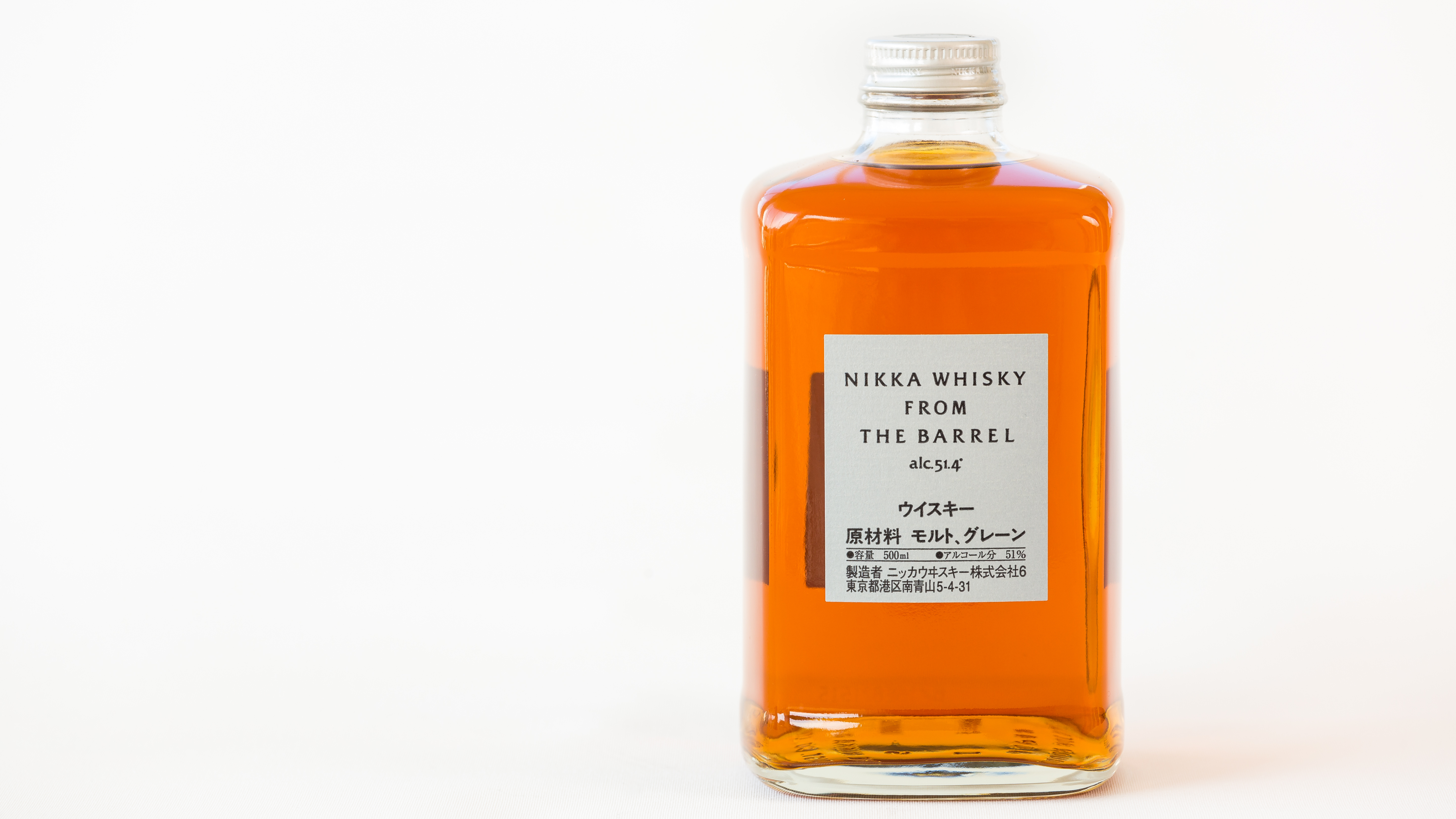A Beloved Japanese Whisky Is Headed To The U.S., And We Might Even Be Able To Afford It
To say that Japanese whisky (no 'e') is having a moment would be inaccurate, as it's been having a moment for quite awhile now and at a certain point, a moment becomes a mainstay. But while the buzz surrounding the spirit has extended beyond the realm of whiskey nerds, it's still not found on all that many bar carts, and that's because many of these bottles ain't cheap.
And now we arrive at the good news! Forbes reports that Nikka From The Barrel, a 103-proof Japanese whisky with a cult-like following that's a mainstay of duty-free stores, will be imported to the U.S. for the first time beginning next month—and the suggested retail price is $65. That's not cheap, but it's also not $100, the price of the last bottle I thought about buying.
Some more about the spirit:
Nikka is famous for its coveted single malts, but Nikka From The Barrel is a complex blended whisky that was specifically created to offer full flavors and richness and is compiled from more than 100 different malt and grain whiskies, all produced at Nikka's Yoichi and Miyagikyo distilleries. These have been aged in multiple types of ex-Bourbon barrels and puncheons, ex-sherry butts, refilled, re-charred and remade hogsheads... [and] three to six months of additional aging harmonizes the blend.
You can read more about Nikka From The Barrel on the company's website.
Sounds pretty great, right? In a statement, the CEO of Hotaling & Co., Nikka's U.S. importer, said that they are "thrilled to bring this beloved whisky to the U.S. and look forward to seeing the cocktail creativity it inspires in bartenders across the country," also calling it the "best-selling expression outside of Japan."
Also, the bottle is pretty. Excited to try this one. If you've already had the pleasure, tell us about it in the comments.
